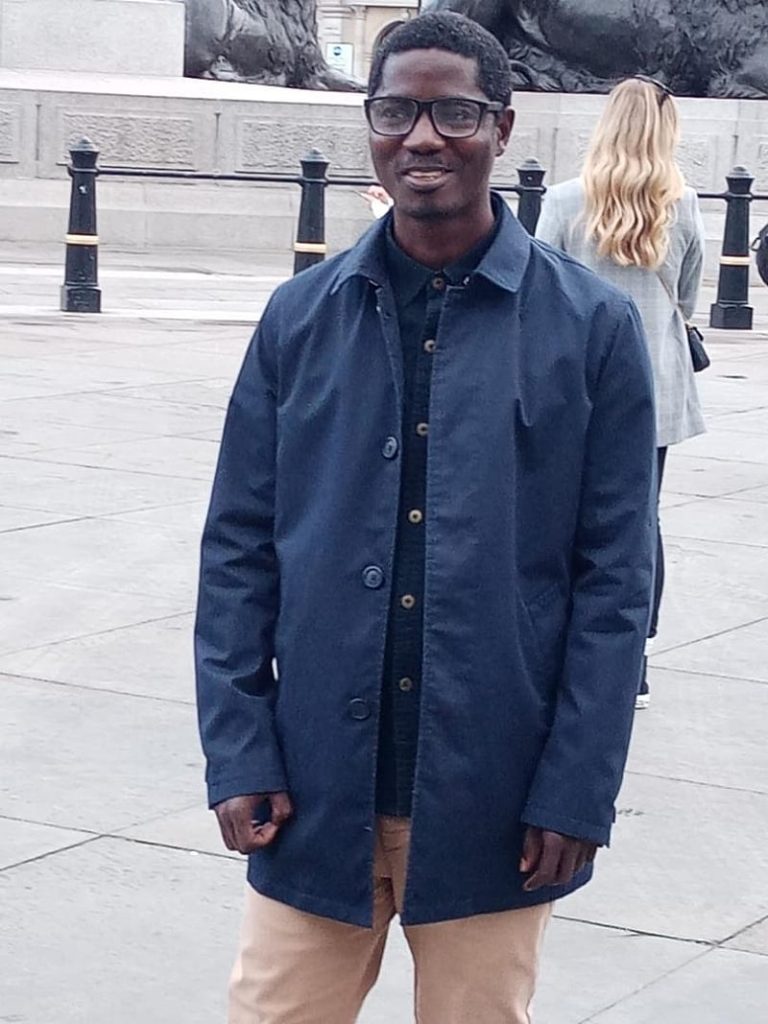
Introduction: When the Land Suffers, the People Do Too
Ghana stands at a perilous inflection point. The very lands that once nourished its people, sustained biodiversity, and powered economic growth are now being hollowed out both literally and figuratively by the accelerating menace of illegal small-scale mining, or galamsey. What began as a livelihood for the marginalized has evolved into a sprawling ecosystem of destruction, undermining national development, environmental integrity, and public health. The rivers are turning black with mercury. Forests are disappearing. Crops are failing. And most disturbingly, communities are silently falling sick. From mercury-induced neurological damage to waterborne diseases and stunted childhood development, the cost of environmental degradation is no longer abstract it is deeply human.
But amid this multi-layered crisis, a technological shift is dawning. Quantum Artificial Intelligence (Quantum AI) a hybrid of quantum computing and machine learning holds the potential to revolutionize how we monitor, predict, and respond to complex systems like illegal mining and its cascading effects. In a world where conventional tools are failing to keep up with the scale and speed of environmental damage, Quantum AI could provide Ghana with the means not just to react, but to act with foresight and resilience.
The Scope of the Crisis: Galamsey’s Dual Attack on Nature and Health
The impact of galamsey on Ghana’s environment is vast and rapidly worsening. According to the Ghana Forestry Commission, more than 100,000 hectares of forest cover have been destroyed since 2010 due to illegal mining, including incursions into protected reserves like Atewa, Bia, and the Oda River Forest. Satellite data from CERSGIS reveals a 60% loss of tree cover in mining hotspots between 2001 and 2022, affecting not only terrestrial ecosystems but also critical carbon sinks. Equally devastating is the contamination of water resources. The Water Resources Commission reports that over 60% of monitored water bodies in mining areas including the Pra, Ankobra, Birim, and Offin rivers are now classified as unsafe for human consumption, irrigation, or aquatic life. Independent testing by the Environmental Protection Agency (EPA) found mercury concentrations exceeding WHO guidelines (1 µg/L) by more than 500% in some areas. Mercury, used in artisanal gold processing, does not just pollute water it accumulates in fish, sediment, and human tissue over time.
The health toll is alarming. A 2021 joint study by the University of Ghana, GHS, and EPA found that 77% of individuals living in galamsey zones had elevated mercury levels above safe WHO thresholds. Mercury exposure is linked to neurological damage, kidney dysfunction, cognitive impairment, and developmental delays, especially among children. According to the Ghana Statistical Service’s MICS report (2018), stunting among children under five in mining zones exceeds 30%, well above the national average of 18%, suggesting pervasive nutritional and environmental stress. In areas of the Western Region, local clinics have reported a disturbing rise in children with learning disabilities, tremors, and vision impairment symptoms consistent with prolonged toxic exposure. Beyond mercury, galamsey has driven a resurgence in vector-borne and waterborne diseases. According to GHS’s Annual Health Sector Review, districts like Prestea-Huni Valley and Bibiani-Anhwiaso-Bekwai have seen malaria incidence rise by 40% in recent years, driven by stagnant mining pits that serve as mosquito breeding sites. At the same time, cholera and typhoid outbreaks have been linked to unsafe water sources downstream from mining operations. Agricultural productivity has declined by up to 35% in some galamsey-prone districts, as per data from the Ministry of Food and Agriculture, due to loss of arable land, acidified soils, and polluted irrigation sources.
This ecological collapse is mirrored by a failing health system. In many of the hardest-hit districts, the doctor-to-patient ratio is as high as 1:15,000, far exceeding the WHO-recommended ratio of 1:1,000. According to a 2020 audit by the Ghana Health Service, fewer than 50% of rural clinics in mining zones have diagnostic capabilities to detect or treat heavy metal exposure. Health surveillance systems remain fragmented, underfunded, and disconnected from environmental monitoring efforts, rendering a timely response nearly impossible.
Enter Quantum AI: A New Brain for an Old Problem
In the face of these intersecting crises, Quantum AI offers a radical new approach to understanding and solving the complex, multi-layered challenges posed by galamsey. Unlike traditional computing, which processes information linearly, quantum computing leverages qubits which can exist in multiple states at once enabling massively parallel computations across huge, uncertain datasets. When combined with AI, this creates a system capable of detecting patterns, forecasting outcomes, and optimizing decisions in environments that are volatile, data-scarce, and non-linear precisely the characteristics of galamsey-affected regions. Applied to Ghana’s mining crisis, Quantum AI can fuse and analyze data from satellite imagery, drone surveillance, IoT sensors, water quality logs, hospital records, and demographic surveys to build real-time environmental and health dashboards. It can detect early signs of illegal mining by identifying landscape anomalies invisible to human observers. It can model how mercury moves through river systems, into agriculture and food chains, and predict which downstream communities are most at risk of exposure. It can simulate how rainfall, land use changes, and chemical runoff interact allowing for preventative action before irreversible damage occurs.
In health, Quantum AI can be used to predict toxicological risk zones by integrating environmental data with GHS records, GSS population maps, nutrition surveys, and birth outcome statistics. It could pinpoint which clinics need urgent mercury testing kits, where mobile health units should be deployed, or which schools require screening for developmental disorders. In the context of a limited healthcare budget and overstretched personnel, these precision interventions could save lives and optimize scarce resources. Moreover, Quantum AI can help design long-term land restoration strategies. By simulating soil recovery under different reforestation plans, projecting biodiversity outcomes, and optimizing agroforestry models, it enables the government to reclaim lands intelligently and sustainably. It can even integrate local knowledge such as traditional farming practices and cultural land-use norms into its algorithms, ensuring that solutions are not just smart, but also community-sensitive.
Practical Applications: Healing Land and People with QAI
Quantum AI can act as a dynamic decision-support engine for both national and district-level policymakers. It can simulate the consequences of proposed mining regulations, environmental cleanup programs, or public health interventions across multiple time horizons and demographic groups. For example, it could show how banning mercury use in one region might reduce hospital admissions by 30% over five years while improving agricultural output by 15%. These are not abstract numbers they are life-saving insights. It could also be used in resource optimization. Ghana’s National Health Insurance Scheme (NHIS) could integrate Quantum AI to detect hotspots of environmental disease burden and allocate subsidies accordingly. The Ghana Education Service could use it to forecast dropout risks in contaminated areas and plan remediation programs. The EPA and MESTI could use it to prioritize environmental audits or issue early warnings based on real-time anomalies in satellite feeds.
Most importantly, it allows for inter-agency synchronization. Currently, Ghana’s environmental, health, education, and agriculture data systems operate in silos. Quantum AI offers the possibility of building a unified data ecosystem where responses are coordinated, not fragmented ensuring a whole-of-government approach to healing the land and its people.
Barriers to Adoption: Challenges We Must Overcome
While the promise is vast, the path to implementation is challenging. Ghana lacks domestic quantum computing infrastructure, though cloud-based platforms such as IBM Quantum and Google’s Cirq can be accessed remotely. A more significant barrier is human capital the country currently has fewer than a dozen experts with quantum computing training and almost none with direct experience in quantum-enhanced AI applications. According to a 2023 survey by the Africa Quantum Foundation, fewer than 5% of STEM students in Ghana have been exposed to quantum algorithms or applications. Data fragmentation is another critical issue. The GSS, GHS, and EPA all collect relevant data, but integration protocols are inconsistent, and data sharing is often impeded by bureaucratic and legal barriers. Building trust among communities is also essential. Surveillance technologies, especially when deployed in rural or marginalized regions, can provoke resistance unless grounded in transparency, local participation, and benefit-sharing.
To overcome these barriers, Ghana must adopt a phased and inclusive approach. Establishing a National Quantum AI and Eco-Health Taskforce, composed of technical experts, public servants, and civil society actors, can coordinate pilot projects and policy frameworks. Strategic partnerships with international research centers, cloud quantum providers, and African quantum networks can accelerate capacity building. Local universities must integrate quantum information science into curricula, and programs like QuBits Africa should be funded to democratize quantum literacy among youth.
Comparative International Case Studies
Several countries offer compelling examples of how advanced data-driven technologies are being used to tackle environmental and public health crises models that Ghana can learn from and, with the right investments, even surpass by adopting frontier solutions like Quantum AI. In Brazil, AI-powered satellite monitoring systems are deployed by the government and NGOs to detect illegal deforestation in the Amazon in near real-time, enabling swift enforcement actions and biodiversity protection. India, facing severe groundwater contamination, has leveraged machine learning and predictive analytics to map arsenic risk zones across states like Bihar and West Bengal, guiding safe borehole drilling and public health interventions. Meanwhile, Estonia has built one of the world’s most integrated digital health ecosystems, where environmental exposure data is linked with real-time health records, enabling rapid epidemiological responses and personalized care. Unlike these nations, which often contend with legacy infrastructure and fragmented data systems, Ghana has the unique opportunity to leapfrog directly to next-generation platforms like Quantum AI. By bypassing outdated models and building a unified, intelligent eco-health response system from the ground up, Ghana can position itself as a continental leader in sustainable technology governance and precision policymaking.
Cost of Inaction and Economic Valuation
The cost of inaction on illegal mining in Ghana is staggering, with economic losses cutting across agriculture, health, and national productivity. In 2022 alone, COCOBOD reported over $120 million in lost cocoa export revenue due to the destruction of 11,000 hectares of productive farmland by galamsey. Mercury-related illnesses, affecting thousands in mining zones, could cost Ghana an estimated $450 million over the next decade in medical treatment, lost productivity, and special education needs. More broadly, UNEP estimates that environmental degradation including water pollution, deforestation, and soil erosion reduces Ghana’s GDP by up to 3% annually, equivalent to approximately $2.25 billion. These compounding losses underscore the urgent need for systemic interventions like Quantum AI to mitigate ecological collapse, protect public health, and secure Ghana’s economic future.
Conclusion: A Quantum Leap Toward Restoring Ghana’s Soul
Quantum AI is not a silver bullet but it is a new compass in a landscape of old problems. It offers Ghana a way to see what was once invisible: the ripple effects of mercury in a child’s bloodstream, the silent erosion of food systems, the silent death of rivers, the subtle collapse of resilience. It offers the power not only to predict and prevent but to design, restore, and reimagine. In healing poisoned land, Ghana can heal poisoned people. In restoring degraded forests, it can revive community economies. In confronting galamsey with intelligence rather than just enforcement it can transform chaos into coherence. With bold leadership, ethical stewardship, and scientific ambition, Ghana can pioneer a future where data, justice, and dignity flow together like clean water through unpolluted rivers.


